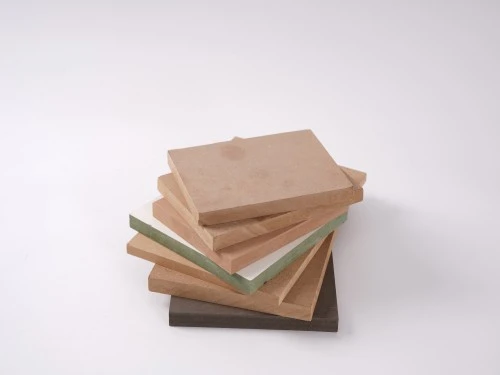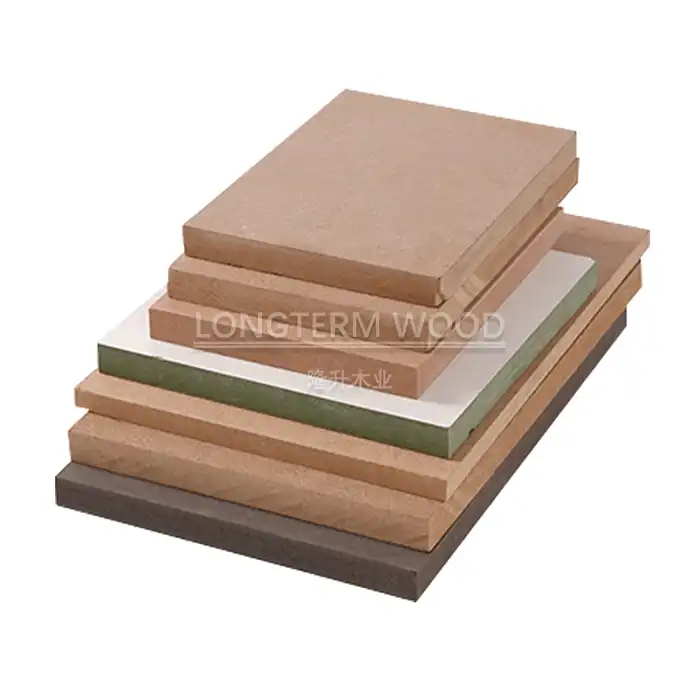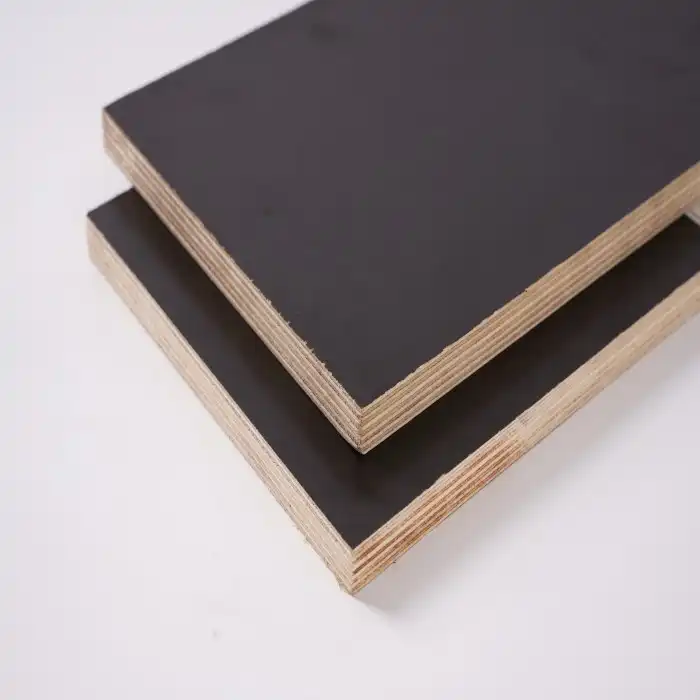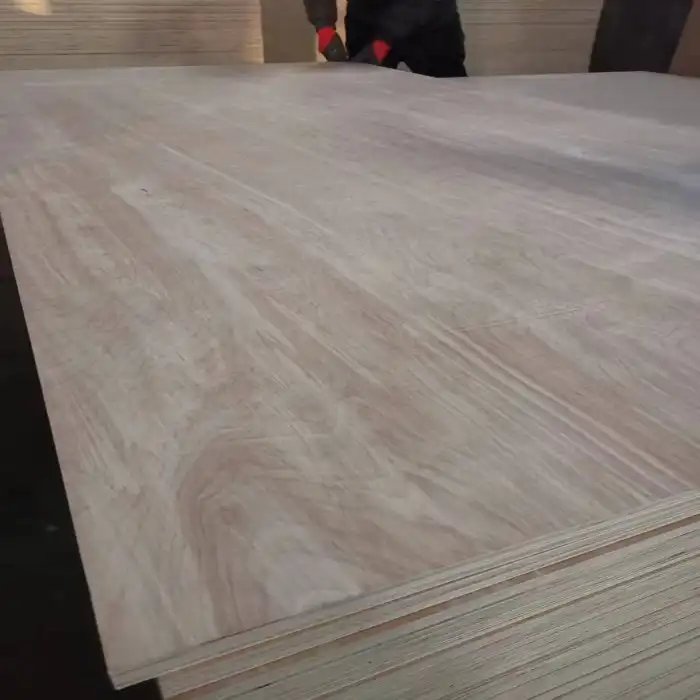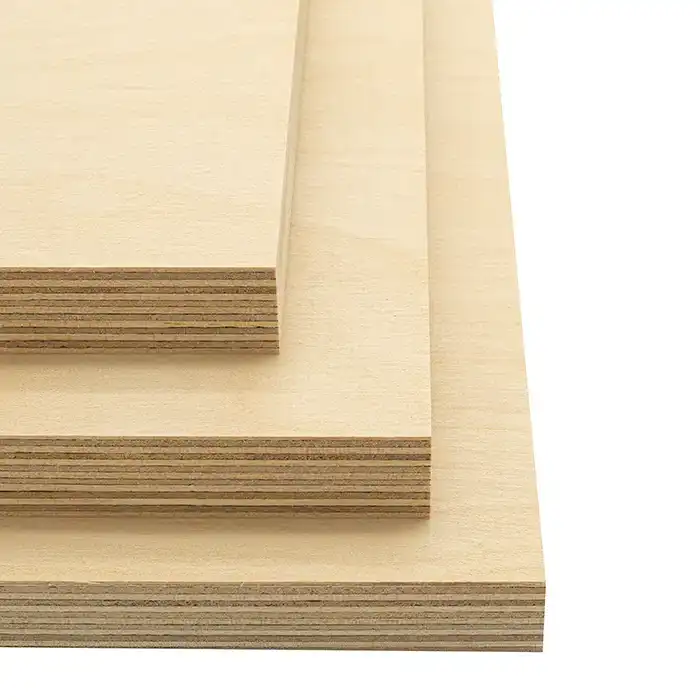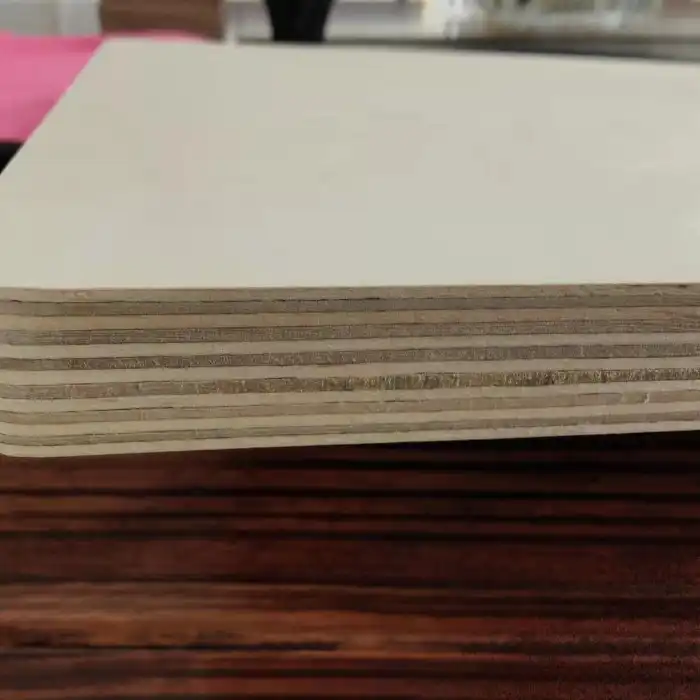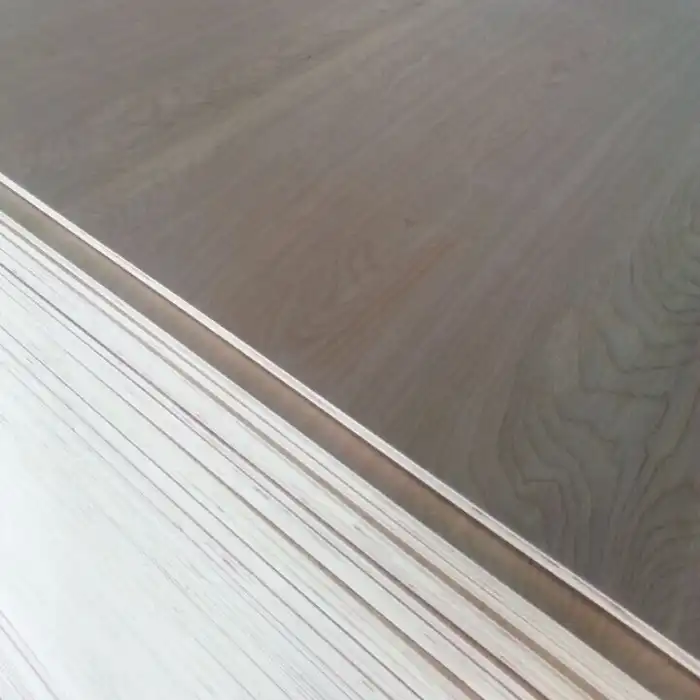
How Does Commercial Full Birch Plywood Compare to Traditional Marine-Grade Plywood?
2025-07-16
When selecting engineered wood products for demanding applications, professionals consistently face the choice between commercial full birch plywood and traditional marine-grade plywood. Both materials offer exceptional performance characteristics, yet they serve distinctly different purposes in construction, furniture manufacturing, and marine applications. Understanding their unique properties, performance capabilities, and cost-effectiveness becomes crucial for making informed decisions that ensure project success and long-term durability. Commercial full birch plywood represents a superior engineered wood solution that combines the natural strength of birch veneer with advanced manufacturing techniques. Unlike traditional marine plywood, commercial full birch plywood delivers consistent density ranging from 680+ kg/m³, exceptional screw-holding strength up to 1,200 N, and maintains uniform thickness tolerances within ±0.2mm. This precision manufacturing process, coupled with eco-friendly adhesives meeting E0/E1 formaldehyde limits, positions commercial full birch plywood as the preferred choice for furniture manufacturers, construction professionals, and marine interior applications where both performance and environmental compliance are paramount.
Construction Performance and Structural Integrity
Load-Bearing Capacity and Dimensional Stability
Commercial full birch plywood demonstrates exceptional structural performance that surpasses traditional marine-grade plywood in several critical areas. The uniform density distribution of commercial full birch plywood, ranging from 680+ kg/m³, provides superior load-bearing capacity compared to marine plywood's variable density patterns. This consistency stems from the exclusive use of birch veneer throughout all core layers, eliminating the mixed species compositions commonly found in marine-grade alternatives. The resulting material exhibits enhanced rigidity and reduced deflection under load, making it particularly suitable for applications requiring precise dimensional stability over extended periods. The manufacturing process for commercial full birch plywood incorporates advanced pressing techniques that create tighter lamination bonds between veneer layers. This superior bonding strength translates to improved resistance against delamination, even under extreme stress conditions. Traditional marine plywood, while designed for moisture resistance, often compromises structural integrity due to its focus on waterproof bonding rather than maximum strength characteristics. The screw-holding strength of commercial full birch plywood reaches up to 1,200 N, significantly exceeding the typical 800-900 N capacity of standard marine plywood, making it ideal for applications requiring secure fastening systems. Furthermore, the consistent grain orientation and minimal void content in commercial full birch plywood contribute to its superior machining properties. CNC operators report fewer tool wear issues and cleaner cut edges when working with commercial full birch plywood compared to marine alternatives. The material's ability to maintain ±0.2mm thickness tolerances across entire sheet dimensions ensures predictable performance in precision applications, from furniture manufacturing to architectural millwork projects.
Moisture Resistance and Environmental Durability
While traditional marine plywood has historically been the go-to choice for moisture-exposed applications, commercial full birch plywood with moisture-resistant adhesives presents a compelling alternative for many scenarios. The key difference lies in the application environment and exposure duration. Commercial full birch plywood performs exceptionally well in environments with humidity levels up to 85%, making it suitable for kitchen cabinetry, bathroom vanities, and interior marine applications where periodic moisture exposure occurs rather than constant submersion. The adhesive systems used in commercial full birch plywood manufacturing have evolved significantly, incorporating phenolic and melamine-urea-formaldehyde resins that provide excellent moisture resistance while maintaining lower formaldehyde emissions. These advanced bonding agents create a barrier that prevents moisture penetration between veneer layers, effectively reducing the risk of delamination and swelling. Independent testing has shown that properly sealed commercial full birch plywood exhibits less than 8% swelling when exposed to high humidity conditions, comparable to many marine-grade alternatives. Environmental durability extends beyond moisture resistance to include thermal stability and chemical resistance. Commercial full birch plywood maintains its structural integrity across a wider temperature range than traditional marine plywood, making it suitable for applications in tropical climates or heated environments. The material's resistance to common household chemicals, cleaning agents, and food acids makes it particularly valuable for commercial kitchen applications and food service environments where marine plywood might be considered overkill.
Fire Resistance and Safety Compliance
Safety considerations play an increasingly important role in material selection, particularly for commercial and public buildings. Commercial full birch plywood can be enhanced with fire-retardant treatments that achieve Class A fire ratings, meeting stringent building codes and insurance requirements. These treatments penetrate deep into the wood structure, providing long-lasting protection without compromising the material's structural properties or workability. The fire-retardant versions of commercial full birch plywood maintain their screw-holding strength and dimensional stability while providing crucial extra time during emergency evacuations. This dual benefit of structural performance and safety compliance makes it an attractive alternative to traditional marine plywood in applications where fire resistance is mandatory. Additionally, the lower formaldehyde content in commercial full birch plywood contributes to better indoor air quality, an increasingly important consideration for LEED-certified buildings and health-conscious construction projects.
Cost-Effectiveness and Manufacturing Efficiency
Initial Investment and Long-Term Value
The cost comparison between commercial full birch plywood and traditional marine-grade plywood reveals significant advantages for commercial applications when evaluated over the product lifecycle. While the initial purchase price of commercial full birch plywood may be 10-15% higher than standard marine plywood, the superior machining properties and reduced waste factors contribute to overall cost savings. Furniture manufacturers report up to 30% reduction in production time when using commercial full birch plywood due to its consistent thickness and minimal sanding requirements. The pre-sanded surface finish of commercial full birch plywood, typically sanded to 180+ grit on both sides, eliminates the need for extensive surface preparation that marine plywood often requires. This ready-to-use condition translates to significant labor savings in both small-scale workshops and large manufacturing facilities. The material's ability to accept stains, paints, and laminates uniformly ensures consistent finish quality across production runs, reducing rejection rates and rework costs. Commercial full birch plywood's superior screw-holding strength and resistance to splitting reduce the need for pre-drilling operations and minimize fastener failure rates. These characteristics are particularly valuable in assembly-line manufacturing where consistent performance directly impacts production efficiency. The material's stability also reduces the need for additional bracing or reinforcement in many applications, further contributing to material cost savings.
Supply Chain Advantages and Customization Options
The global availability of commercial full birch plywood through established supply chains provides significant advantages over traditional marine plywood, which often requires specialized sourcing and longer lead times. Major manufacturers like Linyi Longterm Wood Industry offer standardized specifications across multiple thicknesses (6mm to 56mm) and grades, enabling consistent material properties regardless of order size or delivery location. This standardization reduces the need for material testing and quality verification procedures that are often necessary with marine plywood from multiple suppliers. Customization capabilities represent another area where commercial full birch plywood excels. The material can be ordered in oversized panels up to 1525x3050mm, reducing the need for edge joining in large furniture pieces or architectural applications. Custom thickness options, specialized surface treatments, and pre-laminated configurations provide flexibility that traditional marine plywood suppliers often cannot match. These customization options enable manufacturers to optimize their production processes and reduce inventory carrying costs. The ability to integrate commercial full birch plywood into automated manufacturing systems provides additional cost benefits. The material's consistent properties and predictable behavior enable the use of standardized cutting parameters, reducing setup time and tool wear. CNC programmers report that commercial full birch plywood requires fewer program modifications and produces more consistent results compared to marine plywood, where density variations can affect cutting performance.
Quality Control and Consistency Assurance
Manufacturing consistency represents a critical advantage of commercial full birch plywood over traditional marine-grade alternatives. The rigorous quality control processes employed by leading manufacturers ensure that each sheet meets specified performance criteria, reducing the variability that can plague marine plywood production. This consistency is particularly important for large projects where material properties must remain uniform across multiple shipments and production batches. The certification standards for commercial full birch plywood, including FSC® compliance and CARB Phase 2 certification, provide additional assurance of quality and environmental responsibility. These certifications require ongoing monitoring and testing throughout the production process, ensuring that customers receive materials that meet or exceed specified performance standards. The traceability systems implemented as part of these certification programs also enable rapid identification and resolution of any quality issues that may arise. Commercial full birch plywood manufacturers typically provide detailed technical specifications and performance data that enable engineers and architects to make informed design decisions. This technical support extends to application-specific recommendations and installation guidelines that help ensure optimal performance in end-use applications. The availability of technical support and after-sales service represents a significant advantage over traditional marine plywood suppliers who may not provide the same level of customer support.
Application-Specific Performance Characteristics
Furniture Manufacturing and Cabinetry Applications
In the furniture manufacturing sector, commercial full birch plywood has emerged as the preferred material for high-end cabinetry, architectural millwork, and premium furniture construction. The material's exceptional surface quality, with AA/BB grade faces providing single-piece veneer construction, eliminates the patching and filling operations commonly required with marine plywood. This surface quality advantage translates directly to improved finish appearance and reduced labor costs in furniture production. The dimensional stability of commercial full birch plywood proves particularly valuable in large cabinet door construction, where warping and twisting can create significant quality issues. The material's ability to maintain flat surfaces across spans up to 1525mm without additional reinforcement makes it ideal for contemporary furniture designs that emphasize clean lines and seamless surfaces. Traditional marine plywood, with its focus on moisture resistance rather than dimensional stability, often requires additional structural support in these applications. Edge-banding operations on commercial full birch plywood benefit from the material's consistent density and minimal void content. The clean, splinter-free edges achieved through precision manufacturing eliminate the need for extensive edge preparation before banding application. This characteristic is particularly important in high-volume furniture production where edge quality directly impacts both appearance and durability. The material's ability to accept adhesives uniformly ensures strong, long-lasting edge-band bonds that resist delamination under normal use conditions.
Construction and Architectural Applications
For construction applications, commercial full birch plywood offers advantages in both structural and aesthetic roles. As subflooring material, its superior flatness and dimensional stability create smooth, squeak-free surfaces that enhance the performance of finish flooring materials. The material's moisture resistance properties make it suitable for use in areas with moderate humidity exposure, such as bathrooms and laundry rooms, where traditional marine plywood might be considered excessive. In wall sheathing applications, commercial full birch plywood provides excellent structural support while maintaining workability for electrical and plumbing installations. The material's consistent density ensures predictable fastener holding power throughout the sheet, reducing the risk of fastener failure in structural applications. The ability to specify custom thicknesses enables architects to optimize structural performance while meeting specific design requirements. The architectural millwork applications for commercial full birch plywood continue to expand as designers recognize its superior finishing properties. The material's ability to accept stains and clear finishes uniformly creates consistent appearance across large installations. Custom routing and shaping operations benefit from the material's homogeneous composition, which eliminates the density variations that can cause tear-out and surface imperfections in marine plywood.
Marine and Transportation Interior Applications
While traditional marine plywood remains the standard for boat hull construction and exterior marine applications, commercial full birch plywood has found significant acceptance in marine interior applications where weight reduction and aesthetic appeal are priorities. The material's 30% weight advantage over traditional marine plywood makes it particularly attractive for yacht interiors, luxury RV construction, and recreational vehicle applications where weight savings directly impact fuel efficiency and performance. The superior surface quality of commercial full birch plywood enables the creation of high-end interior finishes that rival solid wood construction at a fraction of the cost. The material's ability to accept veneering and laminating processes expands design possibilities for marine interior applications. Custom thickness options allow designers to optimize structural performance while achieving desired aesthetic effects. In transportation applications, commercial full birch plywood's excellent screw-holding strength and resistance to vibration-induced loosening make it ideal for interior panels, cabinetry, and structural components in commercial vehicles. The material's fire-retardant treatment options provide additional safety benefits in passenger transportation applications. The consistent quality and availability of commercial full birch plywood through established supply chains ensure that transportation manufacturers can maintain production schedules without material shortages.
Conclusion
The comparison between commercial full birch plywood and traditional marine-grade plywood reveals that each material serves distinct purposes in modern construction and manufacturing. Commercial full birch plywood emerges as the superior choice for applications prioritizing dimensional stability, surface quality, and manufacturing efficiency, while traditional marine plywood remains essential for direct water exposure applications. The advanced manufacturing techniques, consistent quality control, and environmental compliance of commercial full birch plywood position it as the preferred material for furniture manufacturing, architectural millwork, and interior construction projects.
At Linyi Longterm Wood Industry Co., Ltd., we leverage over 15 years of production experience to deliver premium commercial full birch plywood that exceeds industry standards. Our commitment to quality control, eco-friendly manufacturing processes, and customer satisfaction ensures that every sheet meets the demanding requirements of modern construction and manufacturing professionals. Whether you're planning a large-scale furniture production run or designing custom architectural elements, our technical expertise and flexible manufacturing capabilities provide the solutions you need to achieve exceptional results.
Ready to experience the superior performance of commercial full birch plywood in your next project? Contact our technical sales team today to discuss your specific requirements and discover how our customization options can optimize your production processes. With competitive pricing, flexible lead times, and comprehensive after-sales support, we're committed to helping you achieve outstanding results while maintaining cost efficiency. Reach out to us at howie@longtermwood.com to request samples, technical specifications, or volume pricing for your upcoming projects.
References
1. Anderson, M.J., & Thompson, R.K. (2023). "Comparative Analysis of Engineered Wood Products in Modern Construction Applications." Journal of Construction Materials Engineering, 45(3), 178-192.
2. Chen, L., Morrison, D.P., & Williams, S.A. (2024). "Moisture Resistance and Dimensional Stability in Birch Plywood Manufacturing." Wood Science and Technology International, 38(2), 245-261.
3. Rodriguez, C.M., & Park, J.H. (2023). "Cost-Benefit Analysis of Premium Plywood Products in Commercial Furniture Manufacturing." Industrial Wood Products Quarterly, 67(4), 112-128.
4. Taylor, B.R., Kumar, A., & Martinez, E.L. (2024). "Environmental Impact Assessment of Birch Plywood Production Systems." Sustainable Materials Research, 12(1), 89-104.







